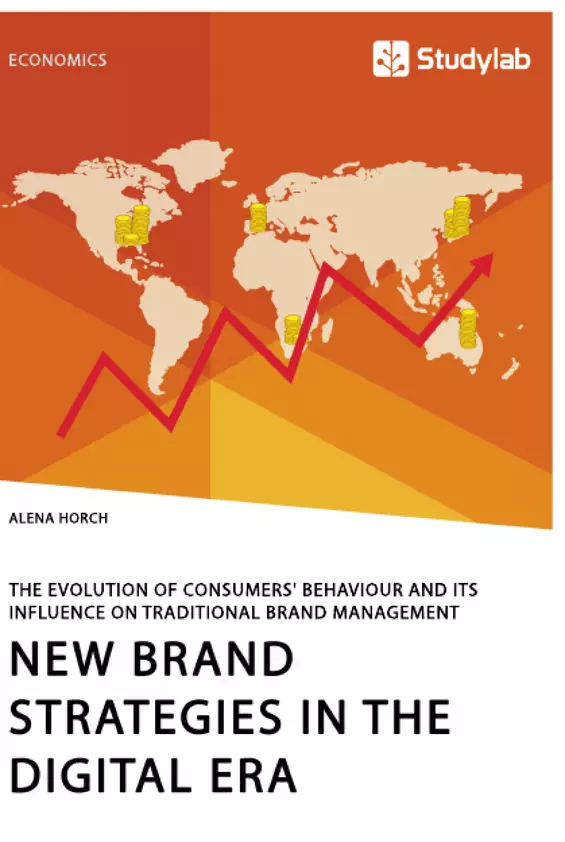Brands are essential for a company. Hence, they need to be carefully developed and managed. During the last years globalisation and digitalisation have introduced many new channels for companies to connect with their customers.
How has consumers' purchasing decision-making process changed in the digital era? How do consumers connect and engage with brands in the changing landscape of the digital age? How can customer loyalty be improved through digital channels?
Alena Horch investigates how consumer’s behaviour changed due to digitalisation and how these changes affect traditional brand management. She focusses on the new decision-making process and on the factors that improve customer loyalty. Her book addresses CEOs and marketing managers.
Keywords:
- digitalisation;
- digital marketing tools;
- decision-making process;
- Corporate Website;
- Search Engine Optimization;
- E-Mail marketing
Inhaltsverzeichnis (Table of Contents)
- Introduction
- Background
- Research Aim and Objective
- Structure of the Study
- Literature Review
- Theoretical Framework of Brands
- The Age of Digitalisation
- Instruments of Digital Brand Management
- The Evolution of Consumer Behaviour in the Age of Digitalisation
- Chapter Conclusion
- Research Methodology
- Research Process
- Research Philosophy
- Strategy and Choice
- Data Collection
- Sampling Approach
- Reliability and Validity
- Data Analysis
- Ethics
- Chapter Conclusion
Zielsetzung und Themenschwerpunkte (Objectives and Key Themes)
This thesis explores the online consumer behaviour of Millennials in Germany, examining their decision-making processes, online engagement, and customer loyalty. It aims to provide a comprehensive understanding of how digitalization has influenced consumer behaviour and offers recommendations for brand managers to adapt their strategies accordingly.
- The impact of digitalization on consumer behaviour
- The decision-making process of Millennials in the digital age
- Online engagement and its role in fostering customer loyalty
- The effectiveness of digital marketing tools in influencing consumer behaviour
- Recommendations for brand management strategies in the digital era
Zusammenfassung der Kapitel (Chapter Summaries)
The introduction provides context for the study by outlining the background of digitalization's influence on consumer behaviour, defining the research aim and objectives, and presenting the study's structure.
The literature review delves into the theoretical framework of brands, the impact of digitalization on brand management, and explores various instruments used for digital brand management. It further analyzes the evolution of consumer behaviour in the digital age, providing a foundation for understanding Millennials' online behaviour.
The research methodology chapter details the research process, philosophy, strategy, and data collection methods employed in the study. It further discusses the sampling approach, reliability and validity of the data, data analysis techniques, and ethical considerations.
Schlüsselwörter (Keywords)
This thesis focuses on key concepts such as Brand Management, Consumer Behaviour, Digitalization, Digital Marketing Tools, Decision-Making Process, Customer Loyalty, Millennials, and Germany. These terms represent the core themes and research focus of the study.
Frequently Asked Questions
How has digitalization changed consumer behavior?
Digitalization has introduced new channels, making the purchasing decision-making process more complex and influenced by online engagement.
What is the focus regarding "Millennials" in Germany?
The study examines how this generation uses digital tools like social media and search engines for brand engagement and loyalty.
What are essential digital marketing tools for brand management?
Key tools include Corporate Websites, Search Engine Optimization (SEO), and E-Mail marketing.
How can customer loyalty be improved digitally?
By fostering online engagement and providing personalized experiences through various digital channels.
What should marketing managers consider in the digital era?
They must adapt traditional brand management to the evolution of consumer behavior, focusing on transparent and interactive communication.
- Arbeit zitieren
- Alena Horch (Autor:in), 2020, New Brand Strategies in the Digital Era. The Evolution of Consumers' Behaviour and its Influence on Traditional Brand Management, München, GRIN Verlag, https://www.grin.com/document/509719



